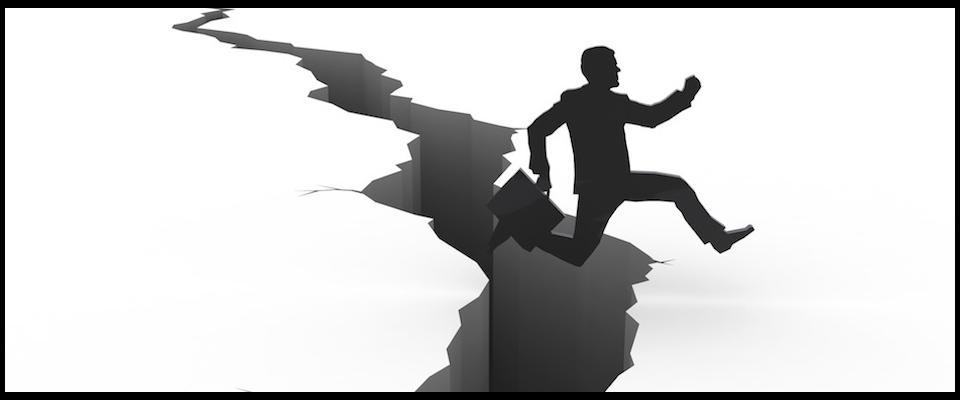From the fervid to the frivolous, the provocative to the inspiring, 2014 never left us at a loss for words, or story ideas.
It was a year in which the nation debated requiring police officers to wear body cams, the state debated whether the University of California was morally obligated to divest itself of climate-imperiling fossil fuel companies, and Berkeley debated whether our ubiquitous cell phones should come with cancer warning stickers. We broke news about tantalizing research breakthroughs, including one that could lead to a global warming remedy scattered across open rangeland, and another that aims to put an earthquake warning sensor in your pocket.
We caught up with Cal alums whose philosophy degrees prepared them to lead surprising lives (from the Peace Corps in Mozambique to the reality TV show “The Bachelor”), and we followed the final days of a young woman determined to face certain death on her own terms. We traced a Marine’s final fight to get his Afghan interpreter to safety, and we took you inside a nail-biting human-powered vehicle race, a Cal class on Buddhist economics, the nation’s first cat cafe, and a landmark Berkeley playground designed to let risk and anarchy reign.
From an array of possibilities, here are our top 16 stories of the year—the most read, the most shared, the most influential.
Earthquake Alert? An app for that is on the way

Saving your life when the Big One finally rocks California? Yeah, there’s an app for that—or there will be soon, anyhow, if Richard Allen has his way. The director of the Berkeley Seismological Laboratory’s goal: to harness some of the planet’s billion smartphones and revolutionize the way quake warnings are calculated and delivered. Since we first reported this story, the technology worked well in August during the American Canyon quake, and by year’s end Congress had approved federal funding to expand the quake sensor network.
The Unblinking Eyewitness:
Should All Police Start Wearing Body Cameras?

Nearly a year before police shootings in Ferguson and elsewhere spurred President Obama and a majority of Americans to support the use of police body cameras, we reported on their rising prevalence in the Bay Area and offered an in-depth look at the pros and cons—for cops and private citizens. “Good or bad, ugly or different, this is going to be a tool, and it’s a permanent eyewitness,” said a police officer in Oakland, which leads the nation in body-worn cameras.
Precaution or Paranoia?
Berkeley May Require Cancer Warning Stickers for Cell Phones

Berkeley has been debating whether to become the first U.S. city to require that every new mobile phone sold in town carry a warning—a sticker advising that the World Health Organization has deemed transmissions a “possible” cause of brain cancer. Some epidemiologists, doctors and researchers believe cell phone signals cause real harm; the wireless industry and a sizeable portion of the scientific community call that nonsense. Said Joel Moskowitz of UC Berkeley School of Public Health: “In our society, the precautionary principle does not resonate well. We want to see a body count first.” Read more »
Philosophy’s Popularity Soars:
Devotees Find It’s More Than ‘An Interesting Path to Poverty’

Years after physicist Stephen Hawking declared that philosophy was dead, the major is going strong. We caught up with a host of UC Berkeley alums to learn where their philosophy degree took them. Among our finds: an organic farmer, a carpenter, a Peace Corps volunteer in Mozambique, the White House correspondent for National Public Radio, and the creator of the reality TV series “The Bachelor.” Read more »
Is 2014 the Tipping Point?
Activist Researcher Fights to Raise Wages of Restaurant Workers

Evidence suggests that the year may indeed have proved to be a tipping point for low-wage workers: 15 states and several cities raised their minimum wage this year, while fast food workers escalated their push for $15 an hour. “The largest workforce in America can’t put food on the table—except when they go to work,” says Saru Jayaraman, who helps lead the effort as an advocate and a researcher at UC Berkeley. Read more »
Igniting Protest:
Will UC Make History By Pulling the Plug on Fossil Fuel Investments?

Activists pushed hard for the University of California system to become the nation’s first large public research institution to jettison fossil fuel investments as a way to fight perilous climate change. Cal students have long been catalysts for turning financial equations into moral ones. The UC Board of Regents—trustees of a $6.4 billion endowment—opted against divestiture in 2014, but the issue isn’t going away. Read more »
What Would Buddha Do?
Berkeley Econ Class Covers Supply, Demand and Enlightenment

While non-economists, Buddhists and Beatles fan will hardly be surprised to learn that money can’t buy you everything, such keen insight seems absent from many microeconomics textbooks. But it is much in evidence in Berkeley economics professor Clair Brown’s “Buddhist Economics” course, which wants to radically change the field by focusing not on how much we demand or consume, but on what we do with our lives. Read more »
Unbroken:
When Cal’s Human-Powered Vehicle Snapped in Two, Nobody Expected This Ending

Things were looking bleak for the UC Berkeley Human Powered Vehicle Team. Right on the eve of the western national race competition, “Rueben,” the state-of-the-art vehicle the engineering student team had spent seven months building, crashed on its first practice lap. Undaunted, the team did what college students excel at: They pulled a frantic all-nighter determined to repair the damage and return to the race. Read more »
Happiness Isn’t Just a Warm Puppy
UC Berkeley is First to Make it an Online Course

This fall UC Berkeley’s Greater Good Science Center offered the nation’s first Massive Open Online Course (MOOC) on the Science of Happiness—and it was such a hit that more than 110,000 people registered for the course. This month it re-launched as a self-paced course. But don’t expect formulaic feel-good platitudes or New Age tips about connecting to a universal afflatus. “The class isn’t a solution—it’s an exercise,” say its instructors, who aim to provide science-based insights that could help people—even people naturally disposed to grumpiness—move the needle toward the ‘good’ direction. Read more »
Comic Outrage:
Real Story of a Berkeley Marine’s Battle for his Afghan Interpreter

Months before an Afghan interpreter identified as Mohammad told his saga on HBO, we wrote about the battle his former Marine platoon mates, and particularly Berkeley Law student Capt. Adrian Kinsella, were waging to get the interpreter and his family to safety. Just before 2014 came to a close, the necessary visas were secured and Mohammad and his family were reunited in the Bay Area. Read more »
Stardust Captured:
Scientists Likely Find First Bits from Beyond Our Solar System

How impressive was it that UC Berkeley scientists announced that they have probably identified, in samples returned from a NASA probe, particles of interstellar matter—the first samples of “stardust” from beyond our solar system? Imagine the largest swimming pool you’ve ever seen, Olympic-sized, filled with some two-thirds of a million gallons of water. Someone has flung a pinch of incredibly fine sand into the pool and it suffuses the entire pool. Imagine trying to retrieve a few grains of sand from that pool with a very small net. Now imagine something much, much more difficult. Read more »
Why the Confidence Chasm?
New Study Finds Both Genders Likelier to Try to Cheat Females

Women are much more likely to be lied to than men during a business transaction, according to new UC Berkeley research. The reason: Women exude less confidence in negotiations and are therefore perceived as less competent. “Once you’re perceived as incompetent, people think you’re easier to mislead,” says lead researcher and Haas professor Kray, adding that even women see their own gender as marks. Read more »
Call of the Wild:
Do Overprotected Kids Need More Risky Playgrounds Like This?

Adventure Playground is one of only a few “junk playgrounds” in the U.S. where fun—and anarchy—reign. Founded by the city of Berkeley in 1979, it was part of a fledgling national movement that fizzled out in the era of “bubble wrapped kids,” hovering “helicopter parents,” and liability lawsuits. Yet some experts argue these wild spaces are exactly what today’s kids need. “It feels a bit like Lord of the Flies,” said one mother. “But in a good way.” Read more »
Taking Control:
Following a Terminal Diagnosis, Brittany Maynard Plans to End Life

Facing a prognosis of unrelenting pain and certain death from a brain tumor, Cal alum Brittany Maynard became the world’s most visible advocate for what she called assisted death. The flood of reaction—support, awe and criticism—was “hard to process,” she admitted in an online campaign to help change laws which in all but five states ban assisted death. “I did this,” she said in her final days, “because I want to see a world where everyone has access to death with dignity, as I have had.” Read more »
New Global Warming Remedy:
Turning Rangelands into Carbon-Sucking Vacuums

New research suggests applying less than an inch of compost to just 5 percent of California’s range lands could suck enough carbon out of the atmosphere to equal the annual emissions of 6 million cars. Sound too good to be true? The director of UC Berkeley’s Energy and Climate Institute calls it “fantastic science with proven benefits.”Read more »
A Feline First: Welcome, Would-Be Adopters, to the Nation’s First Cat Café

Animal shelters can be too depressing, and rescue groups often have difficulty bringing cats and people together in a way that doesn’t smack of animal speed-dating. Enter Oakland’s Cat Town Café, the first of many planned across the country where patrons can sip a mocha, play with the adoptable felines, and even take one home for good. Read more »




















